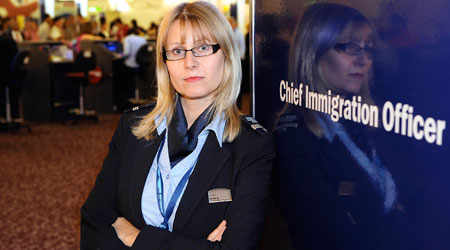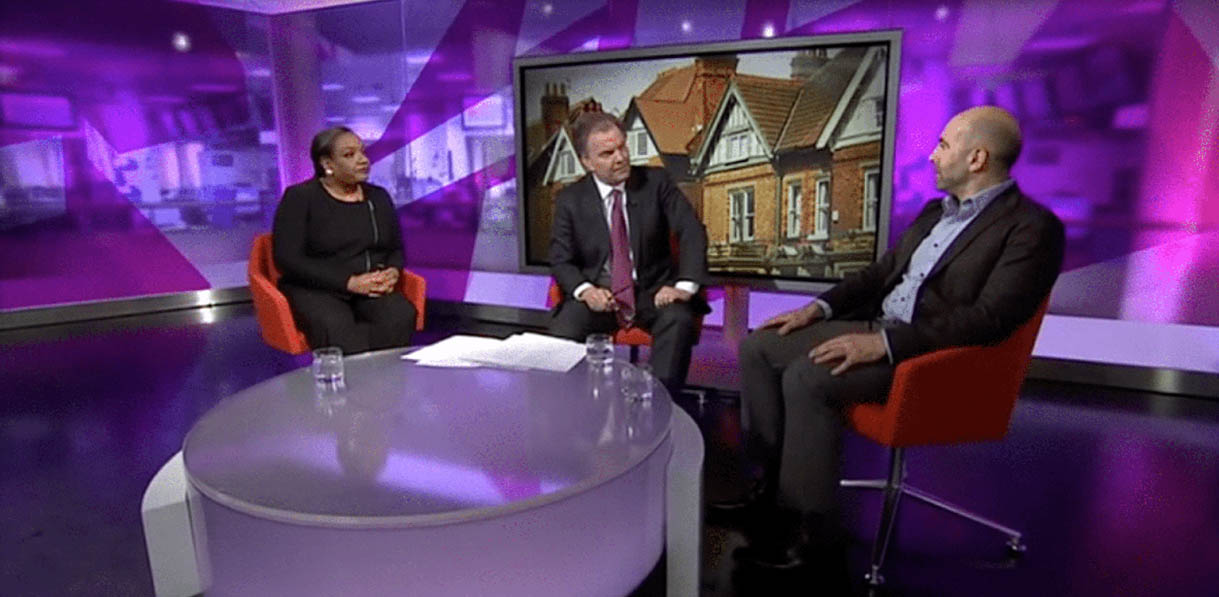 The government’s Immigration Bill received Royal Assent in May 2014, paving the way for landlord immigration checks to become law later this year. The act forms part of their commitment to “take firm action to address illegal immigration.” The government is also “determined to tackle the problem of rogue landlords and the exploitation of illegal immigrants within the housing sector.”
The government’s Immigration Bill received Royal Assent in May 2014, paving the way for landlord immigration checks to become law later this year. The act forms part of their commitment to “take firm action to address illegal immigration.” The government is also “determined to tackle the problem of rogue landlords and the exploitation of illegal immigrants within the housing sector.”
According to Home Office statistics, 85% of migrants to the UK stay in the Private Rented Sector in their first year. The department sees a strong link between substandard accommodation provided by rogue landlords and illegal migrants, often associated with illegal structures like ‘beds in sheds.’ They argue that many responsible landlords carry out identity checks anyway and that this responsibility mirrors that required by employers.
Mark Harper, Immigration Minister, says, “this is in line with existing best practice across the rental sector. We do not want to disadvantage legitimate landlords and tenants and have devised a system which will be effective and light touch while making it tougher for illegal immigrants to rent property, but giving us the powers to take robust action against rogue landlords.” These new measures will actually require a secondary order which will wind its way through parliament in July 2014, when we expect more details to be released. This is what we know so far.
A six month evaluation programme will begin in one geographic area in October 2014, likely to be a conurbation with a sizable private rented sector. This will not be a pilot, the anticipation is that the measures will be rolled out across the UK afterwards, but not until after the 2015 election. The final shape of the programme will be decided by the next government.
So what exactly will landlords have to check? The measures will apply to all new tenancies from the start of the scheme. Landlords must check and copy one or two documents. UK residents must show a passport or a birth certificate and NI card or Driving License. EU Residents must show a passport, ID card or evidence of entitlement to UK benefits. People from other countries must show an in date Biometric Residence Permit plus a passport with a UK Immigration stamp showing the time limit of their stay. In all there will be a list of 74 approved documents. The check will last for one year or the tenant’s length of ‘right to remain’ whichever is the longest. So if a tenant has the right to remain for 3 months, the check will still last for one year.
The Home Office is trumpeting the Biometric Residence permit as a key part of this policy. They say it makes identifying non EEA (European Economic Area) nationals easier to check because the permit has a simple expiry date. I imagine many landlords will become very familiar with these, but until they are, there will always be a Home Office Support line to provide all the help you need.
If a tenancy is renewed a year later, then a further check must be made unless the tenant had the right to remain for longer than one year. So if the tenant had the right to remain for 3 years, then you wouldn’t have to make the check again for 3 years. Interestingly the home office is saying that a statutory periodic tenancy (SPT) does not constitute a new tenancy. So if you let the tenancy agreement run on as an SPT, then you don’t have to carry out another check. However if you issue a new tenancy then you would have to carry out a new check.
If the prospective tenant has no documentation, the home office will provide a checking service – but only for foreign nationals. It has no way of checking UK nationals. The check can be carried out by phone or online. You must provide the name, date of birth and home office application number of the applicant. The home office will issue a yes or no email within 48 hours. If it fails to issue the notice within 48 hours, automatic permission for one year is granted.
A YES notice will last for one year. It will not be transferable between landlords, but the tenant can change property with the same landlord. If a NO notice is issued, there is no right of appeal. Landlords may not let to the applicant unless they have valid evidence that they have the right to live in the UK. Otherwise the landlord will face a fine of £3,000 per illegal migrant that they house. They will also find it difficult to obtain HMO or other licenses.
The landlord must keep records of the check for one year after the tenancy. I assume that good scans, photocopies or photos taken by quality smartphone cameras will be adequate, but we await guidance on this. These measures apply to lodgers, although lower fines of between £80 and £500 would be applied per illegal immigrant. This reflects the fact that such householders may be less aware of the responsibilities of landlords. The government is however keen to prevent displacement of illegal migrants from the PRS into becoming lodgers. If the local authority refers a tenant to a landlord, hey can assume that the immigration status has been checked, though I would recommend getting confirmation in writing from the local authority. It is important that landlords carry out the checks properly because if they reject applicants without an objective reason they could be liable to redress until the 2010 Equality Act. This protects tenants and applicants from less favourable treatment on the grounds of race, colour, nationality and religion plus seven other protected characteristics like sex, sexuality, age and disability.
Some accommodation providers will be exempt. Hotels, guest houses and holiday lets will only have to apply these measures if they house residents for three months or longer. Hostels and refuges will be exempt as will hospitals, university halls and employer provided accommodation.
I think landlords will be left with three main questions. Firstly will these measures achieve home office goals of tackling illegal immigration and stopping rogue landlords from exploiting illegal immigrants? I have a broader humanitarian concern about where people without legal immigration status who are already in the UK are going to live. Measures to tackle rogue landlords and exploitation have to be applauded, but like selective licensing, this feel like another indirect approach. Shouldn’t government give local authorities more support to use existing powers? Local authorities also need to learn from best practice as the enforcement services they provide are very variable.
The second question is are these checks reasonable for landlords? The government says that the home office support line and the online checking service with its 48 hour turnaround will be adequate. But many landlords will have minimal experience of dealing with passports and other identity documentation and will fear getting it wrong. In the consultation paper, the government said that “landlords are not expected to be experts in detecting fraud. Unless they accept documents that are readily apparent to an untrained person as being forged or fraudulent, they will have a ‘statutory excuse’ from paying the penalty. Let’s hope this commitment materialises in the code of practice when it is issued later this year.
My third and final question is whether the one year system is simple and workable enough for landlords and tenants. The NLA was very concerned about requirements to re-check paperwork on the expiry of visas even if this was midway through the tenancy. This has now been removed. The one year validity of checks will complement 12 month tenancies that many landlords offer, that is helpful. There is some confusion still over checks on renewal if the contract is re-issued or goes periodic, so this will need to be clarified, lest we end up in the same muddle as we did with deposit protection last year.
I house 24 people from six different ethnicities. One or two tenants have mentioned to me fears that they may be less welcome if the landlord assumes they are non EEA nationals because of their accent or the colour of their skin. I sincerely hope that market pressures at least in major conurbations in the UK will prevent this. After UKIP’s recent election campaign, I can really understand the anxiety and I hope these measures will not be another excuse to ramp up the rhetoric. There is an onus on all landlords to be skilled at dealing with diversity lawfully and with dignity.
So fellow landlords, get your cap and uniform ordered, landlord border force here we come!








